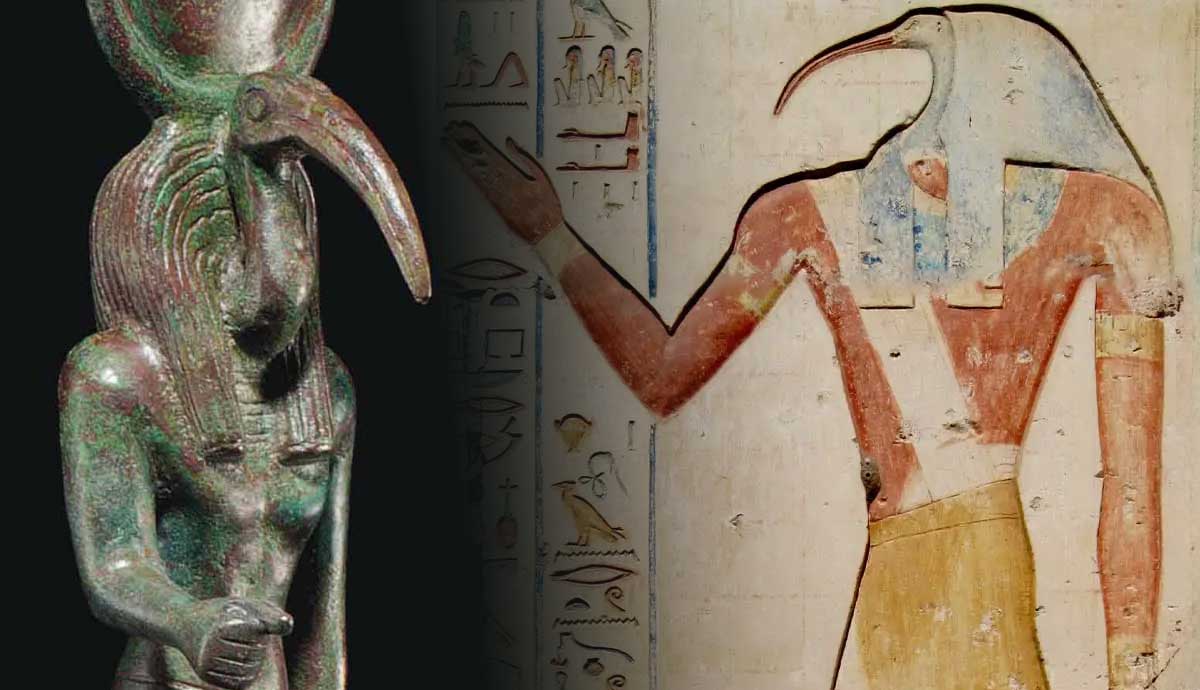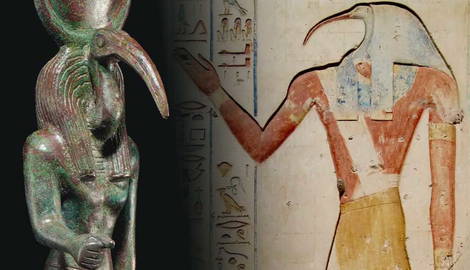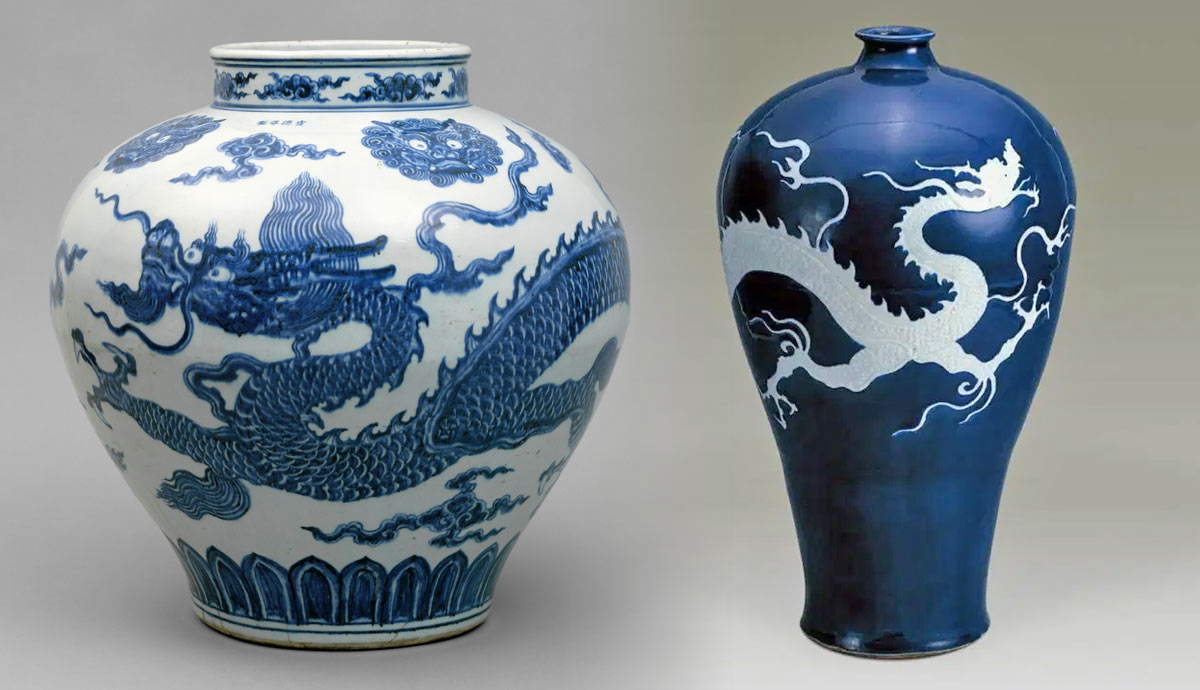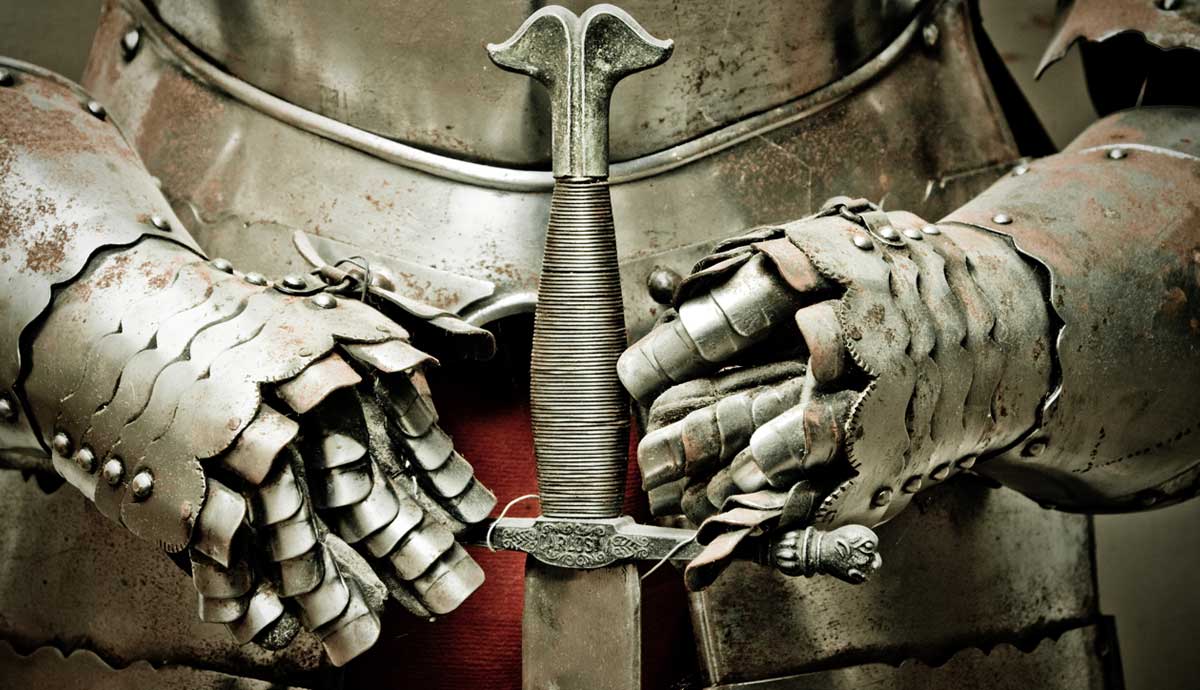
Thoth was one of the major gods of ancient Egyptian mythology, who played a significant role in many foundational myths. He is most commonly represented as a man with the head of an ibis, a sacred animal which Egyptians associated with wisdom. Thoth’s Egyptian name was Djehuty, meaning “He who is like the Ibis.” A complex deity with multiple associations, he was the god of the moon, reckoning, learning and writing. Egyptians believed he was the creator of the written language, which led to knowledge and the arts, as well as an interpreter and advisor to the gods, including the sun god Ra. The cult of Thoth centered around upper Egypt and lasted from at least the Predynastic Period to the Ptolemaic Period.
An Egyptian God with the Head of an Ibis

Thoth’s image is one of the most familiar in ancient Egyptian art; that of a man with the stylized head of an ibis, and often with a lunar disc over his head. He is sometimes shown holding writing tools or a papyrus scroll, to demonstrate his close connection with the written word, language and knowledge. Thoth’s sacred animals were both the ibis and the baboon – sometimes a baboon featured in his pictorial representations, or he even took the form of a baboon himself.
He Was Self-Conceived

There are several originary myths associated with Thoth. In one version of his story, he was self-created during the dawn of time as an ibis, who laid an egg which held the key to all creation inside. In another version of Thoth’s life story, he emerged from the lips of Ra, and became known as a god “without a mother.” Another tale involved a fight for power between the two gods Horus and Set. When Set inadvertently swallowed Set’s semen during their tussle, he conceived a child, who was born from his forehead as Thoth.
Thoth Is Associated with Divine Balance

In the latter version of Thoth’s myth, he healed both rivals and mediated their conflict. He carried this role into his duties as a deity, as a god of equilibrium and justice who presided over Earth, while issuing judgments on disputes between the gods. Thoth was closely associated with Ma’at, the goddess of truth, justice, balance and order, and daughter of Ra. In some myths Thoth is married to Ma’at, and together they represent complementary qualities -Thoth is the practical and grounded voice of wisdom, and Ma’at is the more abstract, ethereal and philosophical emblem of truth.
Patron God of Scribes

Thoth became widely recognized across Egypt as the patron god of scribes. Many Egyptians believed he was the creator of written language and the literary arts, which he gave to humanity through Seshat, Osiris, or Isis. As such he became record keeper of the gods, and had prophetic knowledge that allowed him to know the past and future of a person’s life, linking him closely with the concept of fate. Ancient Egyptian scholars and scribes dedicated centers of learning to Thoth, and sought his wisdom through devotional practice when carrying out scholarly research.
A Figure of Judgment in the Underworld

According to several myths, Thoth had an important role to play in the Egyptian underworld. In the Hall of Judgement, he would weigh a person’s heart on a scale alongside the feather of Ma’at, to find out how they had lived their life. He allowed society’s most weightless and dutiful to enter the afterlife, while condemning evil people to a life of eternal damnation.
His Worship Lasted a Long Time

Thoth was one of the longest surviving Egyptian gods, emerging during the Predynastic Period and surviving throughout the Ptolemaic Period and beyond. His cult held key centers of worship in the cities of Hermopolis Magna, where the Egyptians conjured up magical spells and amulets in Thoth’s name. When the ancient Greeks conquered Egypt, they absorbed Thoth into their pantheon, merging him with the messenger god Hermes to describe a wandering wide man who shared his learning around the world, a notion that persisted into Roman times.










